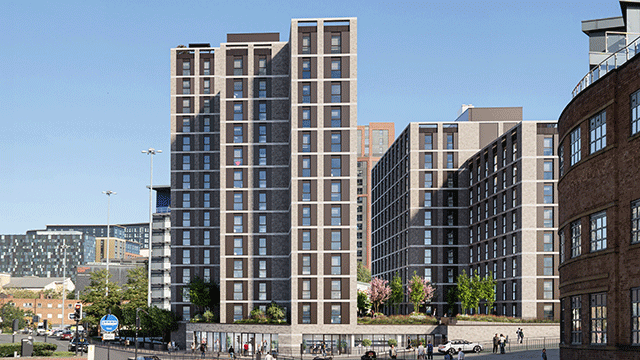Restrictive covenants – Discharge – Section 84(1)(a) and (c) of Law of Property Ac 1925 – Applicant’s property affected by restrictive covenants limiting use to private residence and imposing building lines – No breach of building lines but property formerly extended and converted to use as doctor’s surgery in breach of user covenant – Application to discharge restrictions to permit use as pharmacy shop – Whether restrictions becoming obsolete – Whether discharge injuring any persons entitled to benefit of covenant – Application allowed in part
The applicant owned a property in Leicester that had originally been built as a single, end-of-terrace dwelling-house but had in the past been extended and converted for use as a doctor’s surgery. The property was subject to two restrictive covenants, dating from 1864 and 1881 respectively; the first of these prohibited the use of the property other than as a private residence while both imposed building lines. The use as a doctor’s surgery had been a breach of the 1864 covenant although the extensions respected the building lines in the two covenants.
The property was currently empty and the applicant proposed to use it to open a pharmacy shop. It applied to discharge the restrictions in the two covenants on the grounds in section 84(1)(a) and (c) of the Law of Property Act 1925, namely that the restriction was obsolete by reason of changes in the character of the property or the neighbourhood and that the proposed discharge or modification would not injure the persons entitled to the benefit of the restriction.
The applicant contended that the character of the area had changed dramatically since 1864, with houses being put to a wide range of commercial and retail uses, or converted into flats, such that any remaining dwelling-houses looked out of place. He submitted that there was no reason why the restrictions should remain in place and no particular property or interest that they could or did protect or benefit.
Held: The application was allowed in part.
In relation to the application under section 84(10(a), although the character of the area where the property was situation had changed since the covenants were given, the road frontage remained predominantly residential. A covenant became obsolete only when its original purpose could no longer be served. The intended purpose of the 1864 covenant was to ensure that no buildings except private dwelling-houses could be erected on the land. The changes in the neighbourhood had not rendered the covenant obsolete since the block of properties around the applicant’s property remained predominantly residential and, contrary to the applicant’s submissions, dwelling-houses would not look out of place or out of character. However, the restriction to use as a private residence was none the less rendered obsolete in light of the use of the property as a doctor’s surgery for a prolonged period before the application was made, that being an open and obvious breach in which those with the benefit of the covenant appeared to have acquiesced for a long time, and which involved the modification and extension of the property for use as a surgery. In light of those matters, the 1864 covenant no longer serves its original purpose, and was obsolete, in terms of the use of the application land as a private residence.
However, neither the 1864 covenant nor the 1881 covenant was obsolete so far as it imposed clear building lines, which had not been breached. The building on the applicant’s property, even after the construction of the extension, continued to respect the building lines in the covenants, which continued to fulfil their original purpose to that extent.
As to section 84(1))(c), all that was known of the applicant’s proposals for the property was that it intended to operate a shop for a pharmacy business. In the absence of any details of how that would affect the existing building, and whether it would involve a change to the building line, it was not possible to say that the proposed discharge of the restrictions would not injure the persons entitled to the benefit of the remaining part of the 1864 covenant and the 1881 restriction. Although there might be no such injury, the tribunal was not satisfied that ground (c) had been made out in the absence of adequate details of the applicant’s proposals. It followed that the application to discharge the 1881 covenant was dismissed but the application in respect of the 1864 covenant was allowed in part on ground (a) so as to remove the restriction to use as a private residence.
Gurmail Sidhu, of Douglas Wemyss Solicitors LLP, of Leicester, appeared for the application; the application was unopposed.
Sally Dobson, barrister








